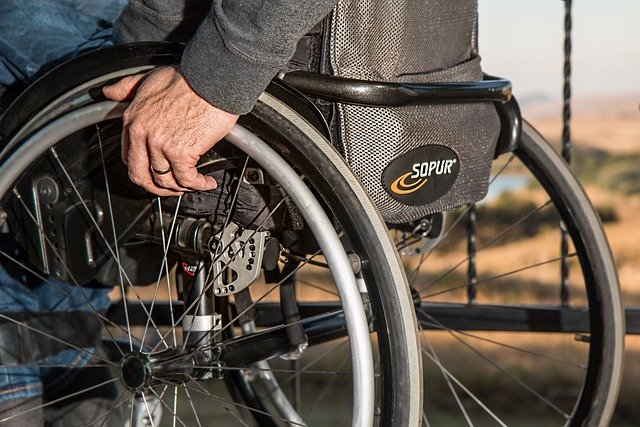Accessibility Solutions for Multi-Level Homes and Stair Navigation
Mobility challenges shouldn't limit access to different levels of your home. Innovative accessibility solutions offer practical options for individuals who need assistance navigating stairs safely and independently. These devices provide temporary or permanent accessibility options, making multi-story living possible for people with various mobility needs. Understanding the features, benefits, and considerations of stair accessibility equipment can help you make an informed decision about improving home mobility.

Understanding Stair Accessibility Equipment and Applications
Stair accessibility equipment represents a significant advancement in home mobility technology. Unlike traditional fixed installations, modern devices offer flexibility and can be moved between different staircases or locations as needed. They typically feature battery-powered operation, making them independent of permanent electrical connections. The design focuses on user safety with features like safety belts, armrests, and emergency stop mechanisms. These systems are particularly valuable for individuals recovering from surgery, dealing with temporary mobility issues, or those who need occasional assistance with stair navigation.
Power Wheelchair Integration and Compatibility
Many modern accessibility systems are designed to accommodate users who rely on power wheelchairs for daily mobility. Some models feature platforms large enough to transport both the user and their wheelchair, while others include transfer seats for easier positioning. The integration process typically involves secure wheelchair positioning systems and additional safety features to ensure stable transport. Weight capacity considerations become crucial when accommodating power wheelchairs, with many units supporting combined weights of 300-400 pounds. Professional assessment is often recommended to determine the most suitable configuration for individual needs.
Types of Lift Equipment Available
The market offers various types of lift equipment designed for different staircase configurations and user requirements. Straight systems work on staircases without curves or landings, while curved models navigate more complex stair layouts. Platform lifts accommodate wheelchairs and scooters, providing a stable surface for transport. Some portable models can be temporarily installed and removed as needed, making them ideal for rental situations or short-term use. Battery-powered options ensure operation during power outages, while others connect to standard electrical outlets for continuous power supply.
Stair Lift Installation and Safety Considerations
Proper installation of any stair lift system requires careful assessment of the staircase structure and user needs. Portable units often feature simplified installation processes compared to permanent fixtures, but safety remains paramount. Key considerations include staircase width, weight-bearing capacity, and clearance requirements. Professional installation ensures compliance with safety standards and proper functioning of all safety features. Regular maintenance schedules help maintain optimal performance and extend equipment lifespan. Users should receive comprehensive training on operation procedures and emergency protocols.
Cost Analysis and Provider Comparison
The investment in stair accessibility equipment varies significantly based on features, capacity, and installation requirements. Basic models typically range from £2,000 to £4,000, while more advanced systems with additional features can cost £5,000 to £8,000 or more. Rental options are available for temporary needs, usually costing £150 to £300 per month.
| Provider | Product Type | Key Features | Cost Estimation |
|---|---|---|---|
| Stannah | Platform Lift | Battery powered, 300kg capacity | £4,500 - £6,500 |
| Acorn Stairlifts | Portable Straight Lift | Quick installation, remote control | £3,200 - £4,800 |
| Handicare | Curved Lift System | Custom configuration, safety sensors | £5,500 - £8,000 |
| ThyssenKrupp | Platform Lift System | Weather resistant, multiple safety features | £4,000 - £6,000 |
| Bruno | Outdoor Lift | All-weather operation, heavy duty | £3,800 - £5,500 |
Prices, rates, or cost estimates mentioned in this article are based on the latest available information but may change over time. Independent research is advised before making financial decisions.
Maintenance and Long-term Considerations
Regular maintenance ensures safe and reliable operation of stair accessibility equipment throughout its service life. Most manufacturers recommend annual professional inspections to check mechanical components, battery systems, and safety features. Users should perform basic maintenance tasks such as keeping tracks clean and checking for obstructions. Battery replacement typically occurs every 2-3 years depending on usage patterns. Warranty coverage varies by manufacturer, with most offering 1-2 year comprehensive warranties on new equipment. Extended service agreements can provide ongoing support and priority repair services.
Stair accessibility solutions provide valuable mobility options for individuals facing challenges in multi-level homes. The combination of flexibility, safety features, and various configuration options makes them suitable for diverse needs and living situations. While the initial investment requires careful consideration, the independence and safety benefits often justify the cost for users and their families. Professional consultation and proper installation ensure optimal performance and long-term satisfaction with these accessibility solutions.




